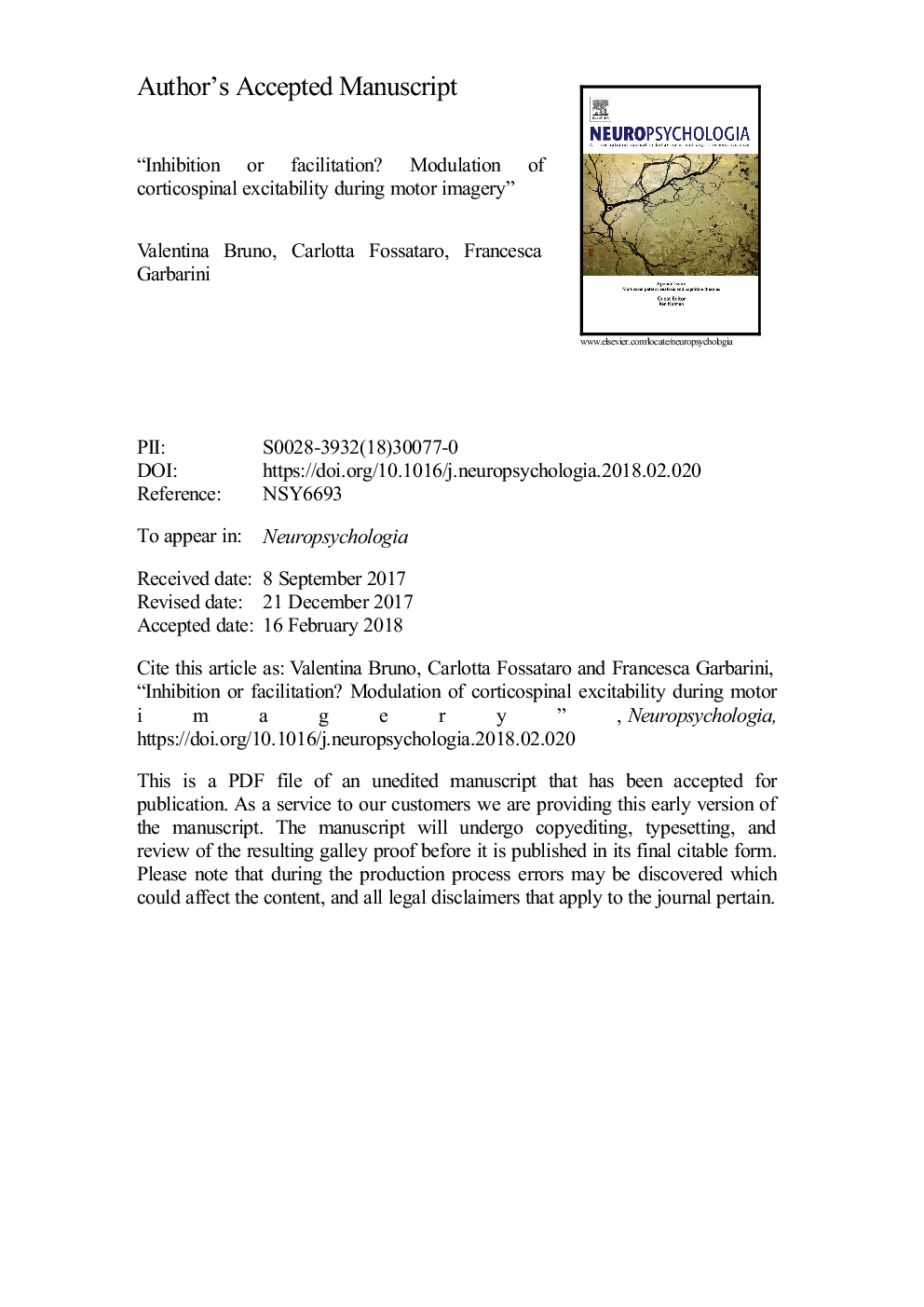ترجمه فارسی عنوان مقاله
مهار یا تسهیل؟ مدولاسیون تحریک پذیری کورتیکواستپسین در تصاویر حرکتی
عنوان انگلیسی
Inhibition or facilitation? Modulation of corticospinal excitability during motor imagery
| کد مقاله | سال انتشار | تعداد صفحات مقاله انگلیسی |
|---|---|---|
| 114801 | 2018 | 32 صفحه PDF |
منبع

Publisher : Elsevier - Science Direct (الزویر - ساینس دایرکت)
Journal : Neuropsychologia, Volume 111, March 2018, Pages 360-368

